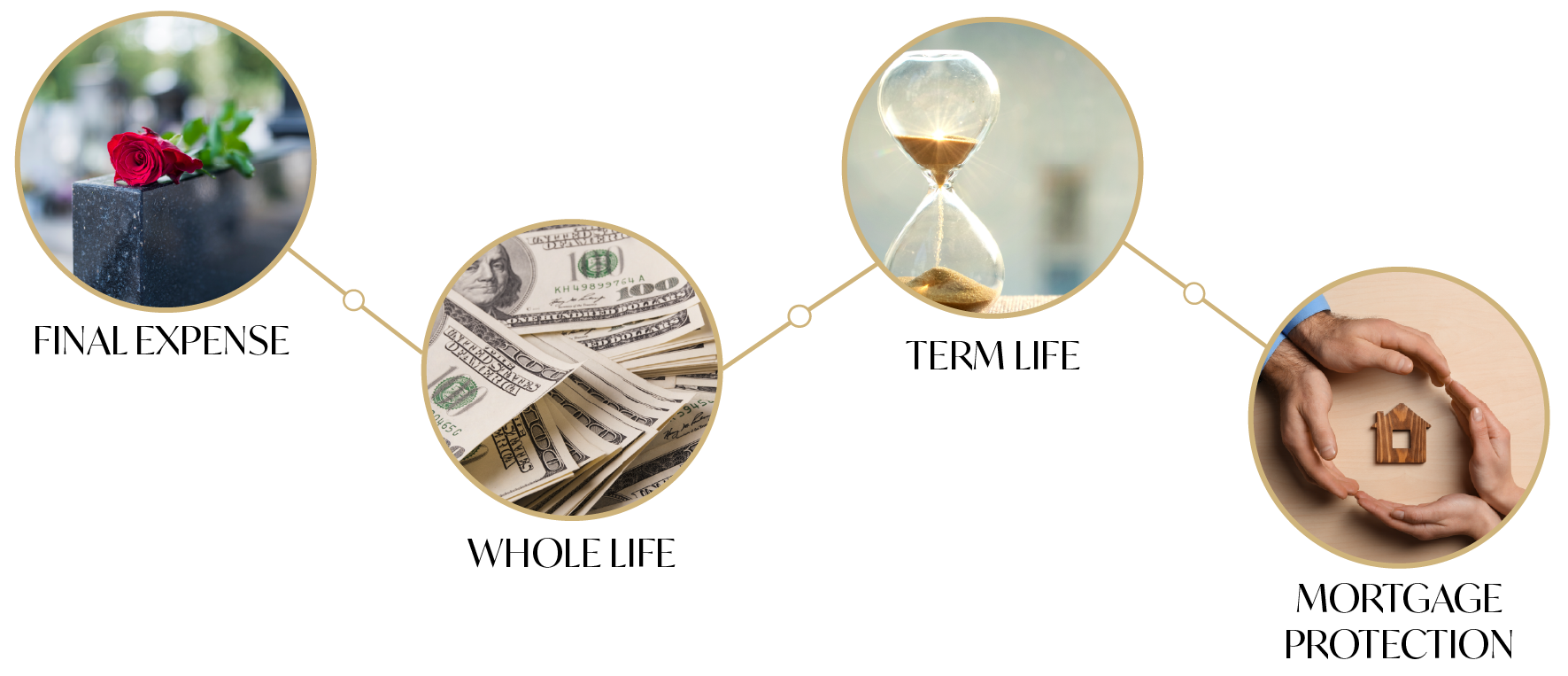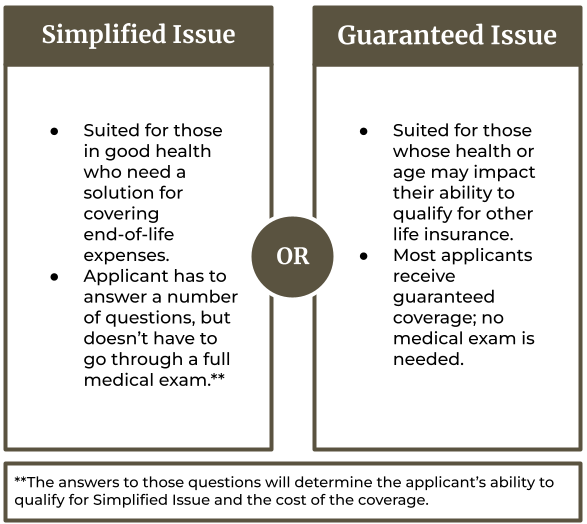Life insurance helps to ensure that in the event of the unexpected, your family will be financially taken care of. In the case of a death, life insurance can provide the necessary funds to cover funeral expenses and other debts that may arise. It can also provide a sense of security and financial stability for the future.
Take a look at the life insurance options below to see which one best suits your coverage needs!

Because Permanent life insurance builds cash value, it can be a source of fund in retirement. Cash value isn’t subject to the volatility that sometimes affects retirement accounts. And, using life insurance for retirement income can offer tax advantages:
1. The death benefit is generally paid out income tax free, but there are some instances where federal and estate taxes can kick in on the proceeds of a life insurance policy. Talk with your tax professional.
2. The total cash value accumulates tax-deferred.
3. You can access the cash value of the policy of a tax-advantaged basis.
Remember, life insurance is, first and foremost, about protecting the ones you love after you’re gone. But some types can actually help you in retirement as well, by providing:
• A way to accumulate a source of funds.
• Tax-deferred growth insulated from market volatility.
• The option to take tax-deferred distributions.
Of course, life insurance should not be a primary source of retirement funding. If used in this way at all, it should be as an accompaniment to retirement accounts and investments made over the years. Whether it’s a good fit depends on your individual financial circumstances. And using life insurance in retirement will have negative implications for the policy’s value.

Life insurance is an important financial tool that can be the foundation of financial security and can provide comfort and stability for your family in the event of an unexpected death. It can help provide your loved ones with financial protection after you die. The proceeds of a life insurance policy can be used to help pay expenses such as funeral costs, medical bills, and other debts. It can also help with lost income and provide financial support for your family. With life insurance coverage in place, you have taken steps to protect your family’s financial future.
Take a look at some of the different types of life insurance below to see which one fits your needs best:

Final expense insurance is a policy designed to cover the costs associated with a person’s funeral and other end-of-life expenses. It’s an option for those who do not qualify for other life insurance as they typically have lower death benefits than traditional life insurance policies, where premiums are often more affordable. Final expense insurance can provide peace of mind for those who want to help insulate his or her family from financial burdens that may arise from his or her passing on.

Whole life insurance is a permanent policy that provides coverage for the insured’s entire life. Whole life insurance also accumulates cash value*, which can be accessed by the policyholder during their lifetime and provides a death benefit to their beneficiaries upon their passing. (*Access to cash value through borrowing or partial surrenders will reduce the policy’s cash value and death benefit, increase the chance the policy will lapse, and may result in a tax liability if the policy terminates before the death of insured).
A whole life insurance policy can give you peace of mind that you’ve helped to protect your family’s financial future if you were no longer in the picture.

Term life insurance is a type of life insurance policy that provides coverage for a set period of time. It can be appropriate for those looking for insurance coverage for a specific period of time such as 10, 15, 20, or 30 years. It is typically a more affordable life insurance policy than permanent coverage, which is more expensive, and provides protection for your loved ones if you pass away during the specific coverage term of the policy. Some term insurance policies have premiums that stay level for the coverage term of the policy. In addition, some term policies can be renewed (however the premium will be higher at that time) or converted to a permanent policy when the term coverage ends. Policies differ, so be sure to ask if the policy you are considering features level term, renewals or conversions.

Take the hassle out of shopping for life insurance! Contact R6 Integrity Group today to get a free, personalized quote. We have the expertise to help you find life insurance solutions for your specific situation. Don’t wait – find the right coverage for your situation.